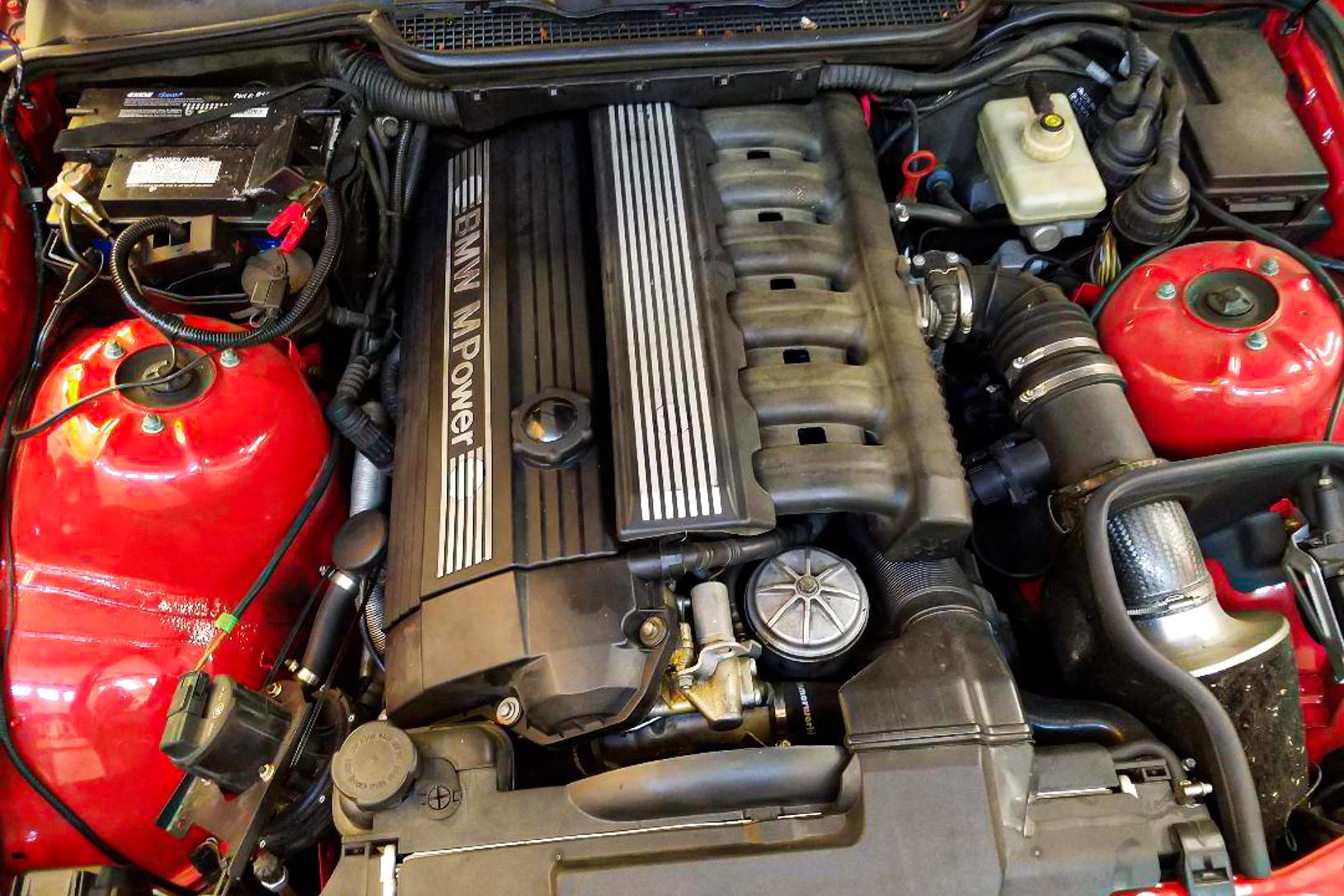BMW 318ti: Performance Specifications and Characteristics Explained
BMW 318ti: Performance Specifications and Characteristics Explained
Blog Article
Crucial Factors To Consider for Selecting the most effective Engine for Your Requirements
In the world of choosing the optimal engine to fulfill your demands, a number of critical factors demand thorough factor to consider to make sure optimum performance and performance. From the nuanced equilibrium between power and efficiency to the often-overlooked aspects of upkeep and service requirements, each facet plays an essential function in figuring out the most suitable engine for your specific needs.
Power and Performance
When examining engines for optimal efficiency, it is crucial to focus on both power outcome and performance. Power output determines the capability of an engine to create power, which straight affects its performance. A high power outcome is vital for requiring jobs such as sturdy applications or high-speed needs. It makes sure that the engine can take care of the work efficiently and efficiently. Power alone is not adequate; performance plays a substantial duty in establishing the total performance of an engine. Effectiveness describes exactly how well the engine transforms gas into useful power. A more reliable engine will certainly deliver much better gas mileage, reduced discharges, and reduced operating expense. Striking the ideal balance between power output and performance is essential to picking an engine that satisfies your particular needs. It is essential to take into consideration elements such as the meant use the engine, ecological influence, and long-term cost implications when making this decision. By very carefully assessing both power and efficiency, you can pick an engine that delivers optimal performance and fulfills your demands properly.
Gas Effectiveness and Economic Situation
Gas performance refers to the engine's capacity to convert fuel right into power with minimal waste, directly impacting operating costs and environmental sustainability. Engines with greater fuel performance not only decrease gas costs but also lower carbon discharges, contributing to a greener operation.

Compatibility and Application
Taking into consideration the fuel efficiency and economic climate of an engine, the next important element to address is its compatibility and application within certain operational contexts. Compatibility describes exactly how well the engine incorporates with the general system or devices it powers. It involves elements such as physical dimensions, placing options, electric interfaces, and control systems. Making sure compatibility is necessary to protect against issues such as overheating, vibrations, or power discrepancies (bmw 318ti).
Furthermore, the application of the engine is equally essential. Various engines are created for specific purposes, whether it be industrial equipment, aquatic vessels, vehicles, my link or power generators. Comprehending the desired application enables the option of an engine that can supply the needed power output, torque, and operational attributes. As an example, a high-revving engine created for performance automobiles would not be suitable for heavy-duty building tools that needs high torque at low rates.
Upkeep and Service Demands
Upkeep and service requirements play a crucial role in making certain the durability and optimum efficiency of an engine. Normal maintenance is important to prevent malfunctions, extend the life-span of the engine, and maintain its efficiency. When picking an engine, it is essential to consider the manufacturer's suggested maintenance schedule and the availability of service centers or qualified service technicians.
Elements such as the regularity of oil modifications, filter substitutes, and total examinations can substantially influence the engine's efficiency. Some engines may require even more constant maintenance based upon their design and use, while others might have longer intervals in between maintenance checks. It is essential to stick to these service requirements to stay clear of pricey fixings and unanticipated downtime.

Price and Budget Plan Factors To Consider
When choosing an engine for a certain application,Spending plan constraints commonly play a substantial function in the decision-making process. When considering the price and spending plan effects of selecting an engine, it is necessary to analyze not only the initial purchase rate yet also the lasting expenses related to maintenance, fuel intake, and possible upgrades or repair services. It is crucial to strike an equilibrium in between the upfront price of the engine and its total lifecycle expenses to guarantee that the chosen engine remains economically sustainable throughout its functional life-span.
Variables such as fuel efficiency, toughness, and reliability can straight affect the overall price of ownership of an engine. While an extra pricey engine might have greater upfront expenses, it might possibly lead to lower upkeep and gas expenses gradually, thus supplying far better worth over time. Furthermore, thinking about the accessibility and expense of spare parts, in addition to the ease of maintenance and service, can help prevent unforeseen economic stress in the future. By thoroughly evaluating these price and budget plan factors to consider, you can make an enlightened choice that straightens with your monetary constraints and operational requirements.
Verdict

Gas performance refers to the engine's ability to transform fuel into energy with minimal waste, visit here directly affecting operating costs and environmental sustainability.Factors affecting fuel effectiveness consist of engine layout, combustion performance, and overall efficiency optimization. Additionally, picking the ideal fuel type and grade as recommended by the engine manufacturer can additionally improve efficiency and extend engine life expectancy.
Engines with great utility features and readily offered parts can reduce upkeep prices and lessen the time the engine is out of operation - bmw 318ti. It is essential to strike an equilibrium between the upfront price of the engine and its general lifecycle prices to make sure that the chosen engine stays financially sustainable throughout its functional life expectancy
Report this page